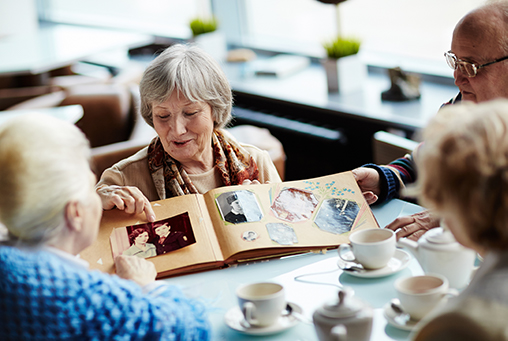The Little Things That Matter in Dementia Care At Home

Caring for a loved one with dementia at home can be both rewarding and challenging. While medical treatments and professional support play a crucial role, its often the small, everyday gestures that make the biggest difference in quality of life. Dementia Care at home Dubai requires patience, empathy, and attention to detailbecause the little things truly matter.
Creating a Safe and Comfortable Environment
A well-structured living space can significantly improve the daily life of someone with dementia. Since memory loss and confusion are common, a familiar and clutter-free home helps reduce anxiety and prevents accidents.
Reducing Hazards at Home
Safety is a top priority in dementia care at home. Simple adjustments like removing loose rugs, installing grab bars in the bathroom, and ensuring proper lighting can prevent falls. Keeping frequently used items within easy reach minimizes frustration and promotes independence.
Maintaining Consistency in Surroundings
People with dementia often find comfort in routine and familiarity. Avoid frequent rearrangements of furniture or personal belongings. A consistent environment helps them navigate their space with confidence and reduces disorientation.
Effective Communication Strategies
Communication can become difficult as dementia progresses, but adapting the way you speak and listen can foster better understanding and emotional connection.
Using Simple and Clear Language
Short sentences and a calm tone help in conveying messages effectively. Instead of asking open-ended questions, offer simple choices like, Would you like tea or juice? This reduces confusion and makes decision-making easier.
Practicing Active Listening
Sometimes, nonverbal cues speak louder than words. Pay attention to facial expressions, gestures, and tone of voice. Responding with empathyeven if the words dont make complete sensehelps the person feel heard and valued.
Encouraging Meaningful Engagement
Keeping the mind and body active is essential in dementia care at home. Engaging in familiar activities can boost mood and slow cognitive decline.
Incorporating Favorite Activities
Whether its listening to old music, gardening, or flipping through a photo album, hobbies linked to past interests bring joy and a sense of purpose. Adapt activities to their current abilities to avoid frustration.
Gentle Physical Exercise
Light exercises like walking or stretching improve circulation and overall well-being. Supervised movement also helps maintain muscle strength and coordination, reducing the risk of falls.
Managing Daily Routines with Care
A structured daily routine provides stability, which is especially important for those with dementia. Predictability reduces anxiety and helps them feel more in control.
Establishing Consistent Meal Times
Nutrition plays a key role in dementia care at home. Serve meals at the same time each day, and offer easy-to-eat, nutritious foods. Finger foods or colorful plates can make eating more appealing if appetite is low.
Promoting Restful Sleep
Sleep disturbances are common in dementia. A calming bedtime routinesuch as soft music, dim lighting, or a warm drinkcan encourage better sleep. Limiting caffeine and daytime naps also helps regulate sleep patterns.

Emotional Support and Patience
Dementia affects emotions as much as cognition. Providing reassurance and understanding helps ease feelings of confusion or distress.
Validating Their Feelings
Instead of correcting inaccuracies, acknowledge their emotions. If they mention wanting to visit a childhood home, respond with, That sounds like a wonderful place. Tell me more about it. This approach reduces agitation and builds trust.
Practicing Self-Care for Caregivers
Caring for someone with dementia can be emotionally taxing. Taking breaks, seeking support groups, and maintaining personal health are vital to sustaining long-term caregiving efforts.
Conclusion
Dementia Care at home in Dubai is about more than just medical needsits about compassion, patience, and the little details that create a supportive environment. Small adjustments in safety, communication, engagement, and daily routines can make a profound difference in the well-being of both the individual and the caregiver. By focusing on these meaningful touches, families can provide loving and effective dementia care at home.


























